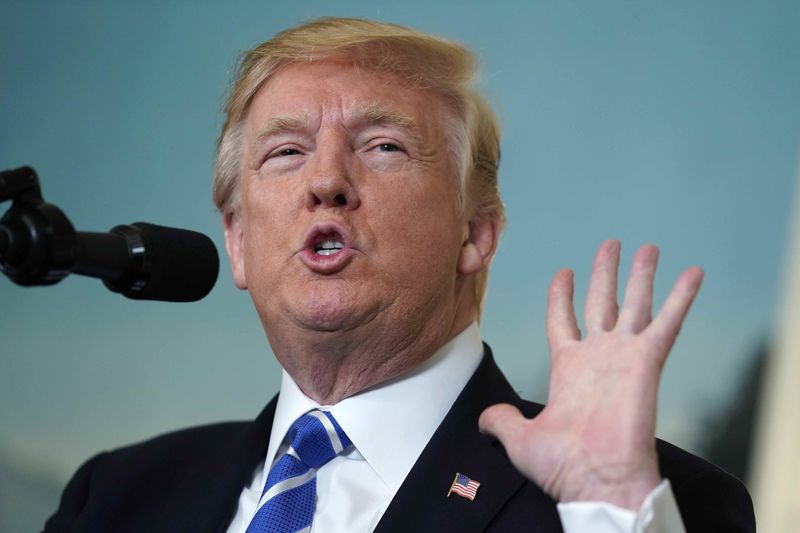WASHINGTON (Reuters) - The White House asked the U.S. Supreme Court on Monday to allow President Donald Trump's latest travel ban to take full effect after an appeals court in California ruled last week that only parts of it could be enacted.
A three-judge panel of the San Francisco-based 9th U.S. Circuit Court of Appeals on Nov. 13 partially granted a Trump administration request to block at least temporarily a judge's ruling that had put the new ban on hold. It ruled the government could bar entry of people from six Muslim-majority countries with no connections to the United States.
Trump's ban was announced on Sept. 24 and replaced two previous versions that had been impeded by federal courts.
The administration's appeal to the top U.S. court argued that the latest travel ban differed from the previous orders "both in process and in substance" and that the differences showed it "is based on national-security and foreign-affairs objectives, not religious animus."
It also argued that even if the 9th Circuit ruled to uphold the partial ban, the Supreme Court was likely to overturn that decision as it had "the last time courts barred the President from enforcing entry restrictions on certain foreign nationals in the interest of national security."
Last week's appeals court ruling meant the ban would only apply to people from Iran, Libya, Syria, Yemen, Somalia and Chad who did not have connections to the United States.
Those connections are defined as family relationships and "formal, documented" relationships with U.S.-based entities such as universities and resettlement agencies. Those with family relationships that would allow entry include grandparents, grandchildren, brothers-in-law, sisters-in-law, aunts, uncles, nieces, nephews and cousins of people in the United States.
The state of Hawaii, which sued to block the restrictions, argued that federal immigration law did not give Trump the authority to impose them on six of those countries. The lawsuit did not challenge restrictions toward people from the two other countries listed in Trump's ban, North Korea and Venezuela.
U.S. District Judge Derrick Watson in Honolulu ruled last month that Hawaii was likely to succeed with its argument.
Trump issued his first travel ban targeting several Muslim-majority countries in January, just a week after he took office, and then issued a revised one after the first was blocked by the courts. The second one expired in September after a long court fight and was replaced with another revised version.
Trump has said the travel ban is needed to protect the United States from attacks by Islamist militants. As a candidate, Trump promised "a total and complete shutdown of Muslims entering the United States."
Critics of the travel ban in its various iterations call it a "Muslim ban" that violates the U.S. Constitution by discriminating on the basis of religion.
The 9th Circuit is due to hear oral arguments in the case on Dec. 6. In a parallel case from Maryland, a judge also ruled against the Trump administration and partially blocked the ban from going into effect.
An appeal in the Maryland case is being heard on Dec. 8 by the 4th U.S. Circuit Court of Appeals in Richmond, Virginia. The Maryland case was brought by the American Civil Liberties Union, which represents several advocacy groups, including the International Refugee Assistance Project.
